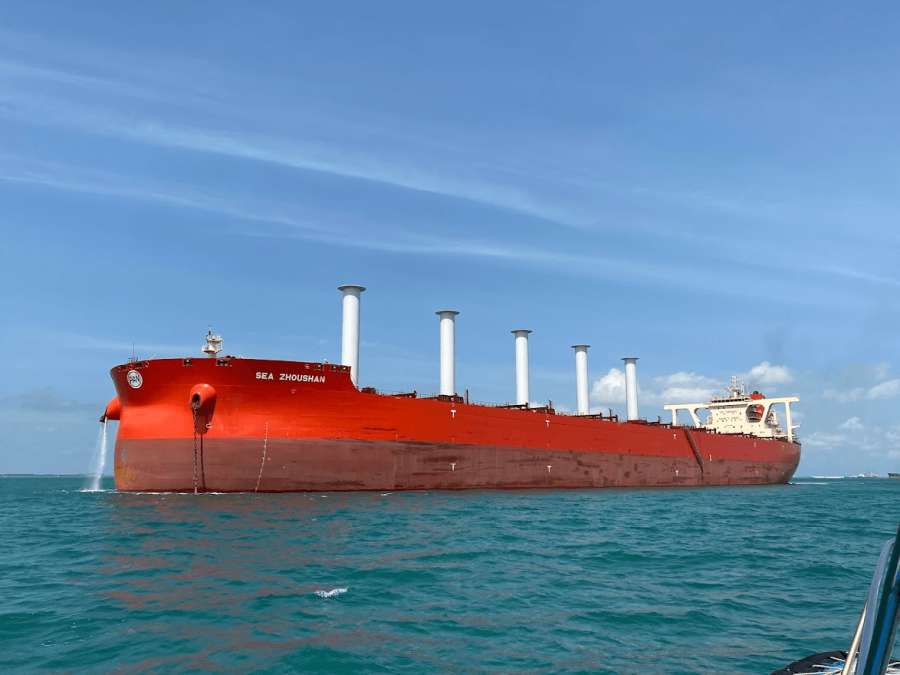Norsepower CEO & Partner Tuomas Riski spoke at the Seatrade Hong Kong Webinar – Sustainable Finance, Shipping and Technology in November 2022 alongside representatives from companies including BNP Paribas and DNV. The high-level panel discussed Hong Kong’s role in financing the industry’s green ambitions. Below Tuomas shares his perspective on some key take-aways from the event and how Norsepower sees the way forward:
Decarbonising shipping has required a change of mindset for everyone. Ship owners are having to rethink operations and embrace new innovations. Financiers are revisiting their traditional lending models. Both parties are conservative by nature which conflicts with shipping heading into unchartered territory.
Making financing or operational decisions with confidence relies on having a clear picture of the facts. The scale of the market opportunity for those companies who can make a meaningful contribution to improving shipping’s environmental performance has created a lot of hype – and not all of it is helpful. Banks and shipowners have been burned by solutions claiming to be more environmentally beneficial than they have been. And that’s why evidencing performance is so critical for informing investments, whether it’s for long-term projects transitionary projects.
New low-carbon fuels are a long time away and will be expensive. Saving fuel is the cheapest way to reduce CO2 emissions now, and it will be in the future as well. The Norsepower Rotor SailTM has negative CO2 abatement costs, and its financial return will increase as new, more expensive fuels come on to the market. Most importantly, we can prove it. Norsepower has good quality data that has been externally verified from a variety of vessel types to prove its fuel consumption reduction claims – enough data to counter any fears shipowners and their financiers might have about over promising and under delivering.
Norsepower’s references have already prevented significant amounts of CO2 emissions from reaching the atmosphere – over 12 000 tons. This truly green outcome is giving those shipowners confidence to progress from individual installations to fleet-wide adoption. This brings still more performance data to help other shipowners evaluate the performance of the technology, accelerating positive change across the industry and its stakeholders.
The world has changed a lot since Norsepower started back in 2012. Whether or not to invest in new technologies was simply a question of financial payback, but that’s not true any more. Shipowners, banks, and charterers must also consider carbon taxes, regulations such as CII, port incentives, and the ESG goals of the wider community.
Financiers will scrutinise EEXI and CII ratings, as those banks signed up to the Poseidon Principles have already indicated. Going forward, financiers will come under more pressure to desist from providing credit for the purchase of lower rated vessels, while insurers will view re-pricing such carbon intensive assets as a higher risk. Simultaneously, cargo owners and charterers will be pushed to boost sustainability across their supply chains, as illustrated by the Sea Cargo Charter initiative.
To meet these expectations, we need to challenge the conventional thinking around clean tech investment, strengthen green financing and eradicate greenwashing. This can only be achieved with quality data and accurate assessment of clean tech projects. Challenging, but Norsepower is leading the way, showing other clean tech manufacturers how it should be done.
It will be worth the effort. My personal estimation is that, with our technology alone, we could reduce global emissions from shipping by up to 8%. This is the sort of data, that should give banks and owners the confidence in their choices.


